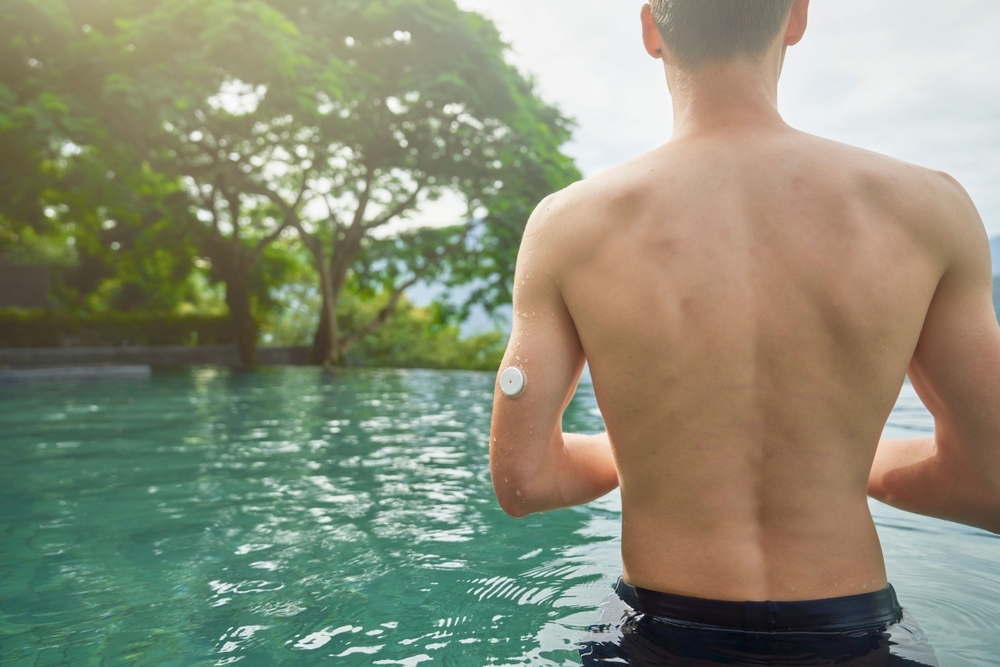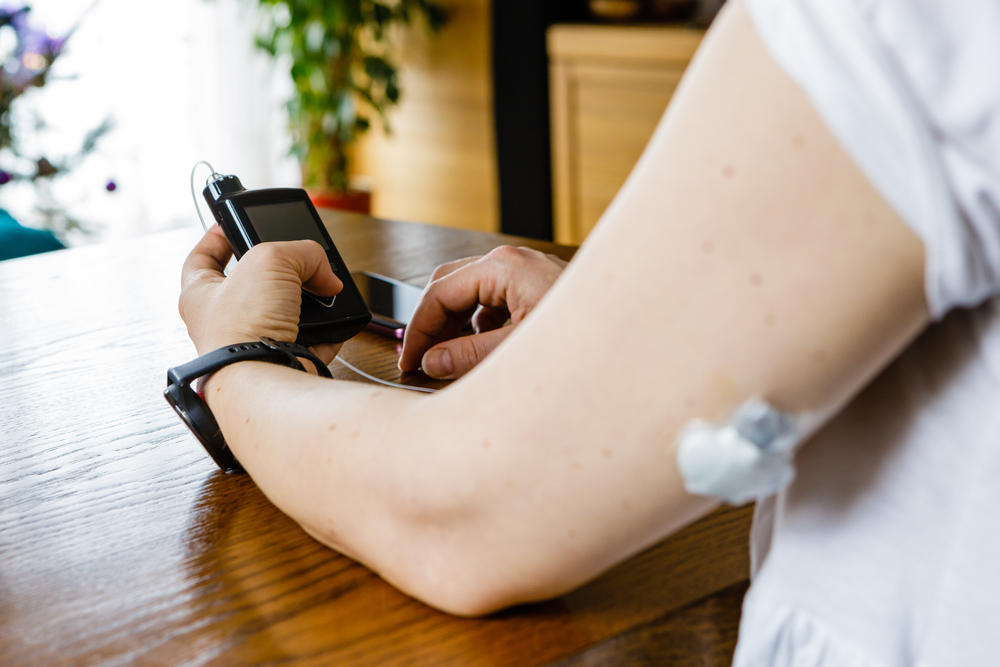What's happening in type 1 diabetes research
Learning about advances in type 1 diabetes research can be a source of encouragement for people living with the condition. With new therapies and technology becoming available at a rapid pace, this is truly the best time in history to be living with type 1 diabetes (t1d).
Industry and science alike are working to improve upon existing technologies, create new ones, and figure out ways to prevent and better treat t1d and its complications. Here's what to know about the latest developments in diabetes research and product innovation.
Advancements in T1D research
With such an encouraging amount of research taking place to help develop treatments and potentially lead to an eventual cure for t1d, it would be impossible to touch on every project here. However, a few major advancements are worth noting.
One such project showing promising results involves a new approach to islet transplantation involving gastrin, a hormone produced in the pancreas during fetal development. At the City of Hope in Southern California, trial participants received an islet cell transplant from a single donor, with two courses of gastrin to help the transplanted cells settle in and grow. The eventual outcome of this procedure is expected to be insulin independence, which would represent a huge step forward.
In other t1d research news, JDRF established new Centers of Excellence at the University of Michigan in 2020 and in New England in early 2021 as part of its efforts to accelerate science in the search for a cure. With more resources being put toward advancing diabetes research, more individuals living with the condition can more easily get the care they need.
Cutting-edge industry innovations
Last year wasn't quite what everyone thought it might be — in more ways than one. However, the future is bright. Some anticipated advancements were impacted by the COVID-19 pandemic, but 2021 looks promising for the long-awaited arrival of many of the following technologies. Here are a few areas of innovation to keep an eye on.
Continuous glucose monitors
With continuous glucose monitors (CGMs) playing such a key role in the success of the closed-loop insulin delivery systems, improvements upon the existing technology — and new players in the market — are even more important. Here are the device innovations that members of the diabetes community are looking forward to:
Dexcom G7
The Dexcom G7 CGM is expected to have some noticeable changes from the current G6 model, including an expanded sensor life (possibly 14+ days) and a thinner, fully disposable integrated sensor and transmitter. A 2021 release could take place after a pandemic-related 2020 delay.
Abbott FreeStyle Libre 2
A recent U.S. release, the Abbott FreeStyle Libre 2 is FDA-approved in children ages 4 and up, utilizing optional real-time glucose alarms with a sensor life of 14 days. An app that would allow the use of a phone instead of the reader is under review at this time.
Senseonics Eversense
The next step for the Senseonics Eversense CGM is to move from a 90-day implantable sensor life to a 180-day sensor life. Senseonics filed for the 180-day approval in 2020, which has been delayed by the pandemic but seems likely to be coming soon.
WaveForm Cascade CGM
A new player in the U.S. market, the WaveForm Cascade CGM is expected to have a 2021 launch after having an initial launch in Europe.
Insulin pumps
"Closing the loop" is the theme in new and upcoming insulin pump technology. Patients will be able to choose from a variety of options to find what works best for their diabetes management. Here are the developments to watch for:
Tandem t:sport
The t:sport will be a new style of pump for Tandem, with a small body, no display screen, and the ability to choose tubing length. It's possible that the pump may be controlled from either a receiver or smartphone, pending FDA approval (expected sometime in 2021 after a COVID-19-related delay).
Medtronic 780G
Medtronic's next automated insulin delivery system will be the 780G, advertised as having a more accurate and reliable algorithm for dosing adjustments and a target minimum of 100 milligrams per deciliter, down from the previous set target of 120 milligrams per deciliter. The BLE-enabled pump is expected to come to market in 2021.
Omnipod 5 (previously known as "Horizon")
Insulet's long-awaited venture into closed-loop systems may finally arrive in 2021 after previous and pandemic-related delays. The Omnipod 5 is expected to allow for a user-adjusted target between 100 milligrams per deciliter and 150 milligrams per deciliter, using a receiver or Android phone for control.
Bigfoot Biomedical Unity
The Bigfoot Unity Diabetes Management System (a smart pen cap and companion app) is currently under regulatory review in the U.S. A closed-loop pump based on the previous Asante Snap pump body is still in development.
Beta Bionics iLet
The insulin-only version of Beta Bionics iLet automated insulin delivery system is expected to arrive sometime in mid to late 2021. Using basic user information and machine learning, the iLet is expected to be a user-friendly and accessible system, with no carb counting necessary.
Bluetooth-enabled devices
Inhaled insulin currently lacks record-keeping data that's automatically collected and easily accessible through insulin pumps. That could be changing, though, with an eye toward the technology that has made the InPen™ a tempting choice for patients who prefer multiple daily injections (MDI):
Mannkind BluHale
The vision for Mannkind's BluHale smart insulin inhaler is that it would enable dose tracking, collect relevant data for patient knowledge, and integrate with existing diabetes and health apps and platforms (such as One Drop, which has announced plans to integrate the inhaler with its app). A release date is unknown at this time.
Data management
With telehealth and virtual visits on an accelerated rise due to the COVID-19 pandemic, the need for data management apps has become more clear, more quickly. Improvements to the following options help people with t1d keep track of their own data and more easily share with their providers for support and insights:
Tidepool
Tidepool continues to be a helpful resource for both patients and providers in collecting, managing, and seeking insight from diabetes data. Additionally, Tidepool has submitted its interoperable Loop app for automated insulin delivery to the FDA, with more news to come on what happens next for both functions.
Glooko
Clinics and healthcare systems are also using Glooko for remote monitoring and personalized insights for diabetes patient care, particularly as patients require support at a distance.
Nightscout
A DIY favorite in the diabetes community, Nightscout offers a continuously evolving platform and variety of reports to keep both diabetes DIY-ers and others in the know as they harness their (or their child's) data for improved diabetes management.
Take part in the action
Sometimes it can feel like type 1 diabetes research isn't moving quickly enough and could use more insight from people living with the condition. Did you know that you can contribute your lived experience to the efforts of those looking to improve quality of life, clinical outcomes, and a path toward a cure for t1d? It's true.
With market research, you can give your opinion about proposed developments. By volunteering for clinical trials, you can help bring new therapies to market. If you can send emails or make calls, you could be an advocate for people with diabetes on your own or through nonprofit organizations that are working to improve equity and access to new therapies and tools.
Ultimately, any contribution of your time, unique skills, and resources to organizations that fund research is an impactful effort toward a better tomorrow for people with diabetes.
Technology is moving quickly these days — do you want to know what's coming next? Edgepark Health Insights has you covered with more information on emerging diabetes tech, including the first smart insulin pen.




